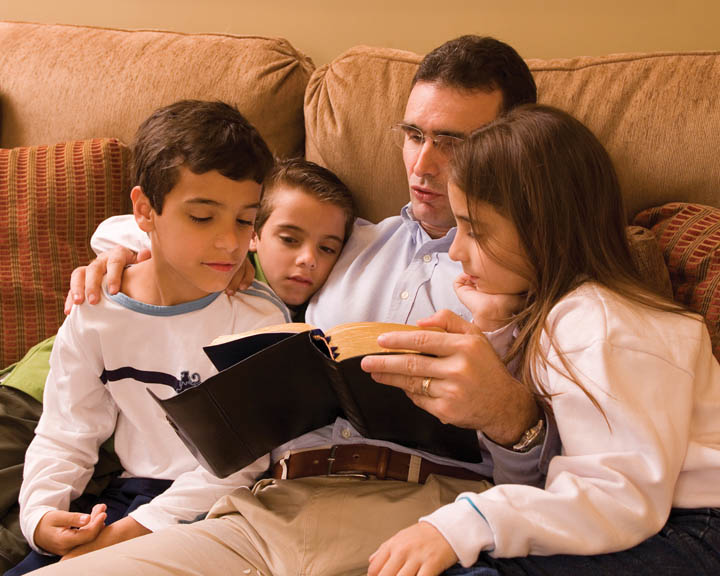Our children are very vulnerable and need love and kindness. Family and friends are entrusted to care for our youth, but there are situations where our children are not safe, and abuse becomes the norm. Not just physical or sexual abuse but emotional and mental abuse, which is more difficult to trace.
 In an article posted in Deseret News on August 2nd, 2012, by Rachel Lowry called “Mental abuse as injurious as other forms of child abuse” it states, “Though the effects of terrorizing, belittyouling or neglecting a child are more difficult to trace — being subsequent to the nature of the relationship between caregiver and child, rather than one specific event — they can be every bit as traumatic as those of other abuse, three pediatricians wrote this week in the journal Pediatrics.”
In an article posted in Deseret News on August 2nd, 2012, by Rachel Lowry called “Mental abuse as injurious as other forms of child abuse” it states, “Though the effects of terrorizing, belittyouling or neglecting a child are more difficult to trace — being subsequent to the nature of the relationship between caregiver and child, rather than one specific event — they can be every bit as traumatic as those of other abuse, three pediatricians wrote this week in the journal Pediatrics.”
Emotional and mental abuse is degrading and debilitating to anyone, but to place an innocent child in harm’s way through emotional abuse is unspeakable. There are numerable surveys showing the incidence of emotional abuse, according to Time Magazine. Rachel Lowry wrote that a “number of U.S. surveys [found] more adults claiming they faced psychological maltreatment as children than claim they experienced any other form of abuse.”
But the evidence goes beyond the surveys of adults remembering their childhood. This debilitating abuse shows up in diagnoses of a spectrum of disorders and dysfunctions. According to the website Teach Through Love , “..emotional deprivation still can produce drastic effects from emotional abuse, such as babies who grow anxious and insecure, and children who are slow to develop and who may fail to develop a strong sense of self-esteem.”
The effects are long-lasting and debilitate children long into their adulthood. Adding oil to the fire in this situation, our society claims psychiatric diagnosing and drugging is the answer for our children.
Dr. Breggin’s post, “The New Child Abuse: The Psychiatric Diagnosing and Drugging of Our Children” on Huffington Post says: “The diagnoses are becoming almost innumerable including LD, ADHD, OCD, oppositional defiant disorder, bipolar disorder, and Asperger’s and autistic spectrum disorders.
Not to say that all children with those dysfunctions have suffered from emotional abuse, but parents must take care that their children are not abused by their own emotional issues. This will insure that children have healthy personalities into adulthood.
Dr Breggin goes on to say that it’s not uncommon to find children subdued and crushed by multiple psychiatric drugs. The over-drugging of children with these conditions can stem back to an unstable home life of emotional abuse.
These abuses are difficult to pin point at times. Children have stresses at school and sometimes in their own neighborhoods. It’s not always safe and there can be poor living conditions. When does a parent go overboard with punishment or reacting to children’s poor behavior?
From Teach Through Love, there are six types of emotional abuse a parent can look out for in their parenting strategies.
1. Rejecting—which includes constant criticism, name calling, swearing at a child and telling them they are ugly or stupid. These acts display rejecting behavior toward a child and will, even unconsciously, let a child know that he or she is unwanted. Children need kindness to learn kindness. Parenting is difficult at times, but as adults we need to remember the golden rule and teach with kindness.
2. Ignoring—which includes no response to an infant’s spontaneous social behaviors, lack of attention during school programs, significant events, or refusing to discuss your child’s activities and interest. There is no attachment or any positive nurturing to the child. Many times the parent is physically there but emotionally unavailable. As parents, we need to take the time to nurture and listen to our children.
3. Isolating—which includes leaving a child unattended for long periods of time, or keeping a child away from extended family. Not allowing a child to have any friends or rewarding a child when he or she withdraws from his social environment. Not to confuse this with time out. There are times when a child needs to spend some time in his room to remove him from bad behavior, but children need friends to socialize and learn how to be a good friend. They need parents to teach their children socially acceptable behavior and practice with children close to their age.
4. Corrupting—which includes permitting children to use drugs or alcohol, watch cruel behavior towards animals or inappropriate sexual content in entertainment. Even encouraging under aged children to steal, commit assault, or gamble is a corruption of children. Children are born innocent and need to be encouraged to continue in this lifestyle. They need the guidance of good parents who will lead them along a healthy, socially acceptable way of life. How sad it is that some parents will teach their children otherwise.
5. Terrorizing—which includes threats, yelling and cursing one’s children. Singling out one child to criticizing, punish or ridicule in public is very abusive. Threatening a child with harsh words, physical harm or abandonment is unacceptable. This behavior goes back to the thoughts of kindness. No child should ever have to live in an environment which can terrorize a child. Parents should think twice about the effects of what they do to their own children.
6. Exploiting—is more difficult to understand. Some examples from the website include expecting young children or babies not to cry, or expecting a child to be the caregiver to the parent. Expecting a young child to take care of younger siblings and then blaming the child for their bad behavior. This is not acceptable parenting and should be stopped. Parents are responsible for their own children’s safety and well-being. It should not be pushed off to children too young for this responsibility.
Emotional abuse can result in many behavioral problems, which are multiplied by over-drugging a child for behavior which can be eased by good parenting skills. It is sad to see such abuse from parents who are supposed to care for their children. Children are a blessing from God. As parents, we should take the utmost care of how we treat them.
By Valerie Steimle
Valerie Steimle is a member of The Church of Jesus Christ of Latter-day Saints (ʺMormonʺ woman). She has been writing as a family advocate for the past 20 years. She is the mother of nine children living in southern Alabama and is the author of four books and a weekly newspaper column, Thoughts from the Heart.
Additional Resources:
Basic Mormon Beliefs and Real Mormons

